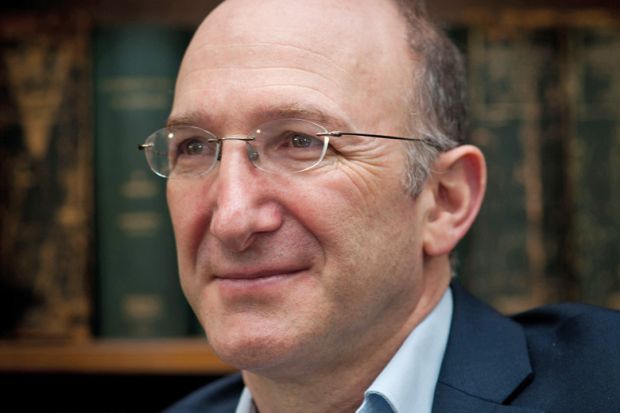What is it like for academics to try and bring scholarly analysis to issues that are at the centre of fierce public debate?
On 29 April, Jeremy Corbyn appointed Shami Chakrabarti to chair an inquiry into “anti-Semitism and other forms of racism including Islamophobia, within the [Labour] party”, after a series of incidents involving Ken Livingstone, Naz Shah and others.
It soon attracted comment from both “sides”. There were those who believe that the Labour Party is riddled with antisemitism and feared that the inquiry would be a whitewash. Others suggested that the issue was just a storm in a teacup, an attempt to curb legitimate criticism of the state of Israel or part of a coordinated campaign against Mr Corbyn’s leadership.
One of those caught in the crossfire was David Feldman, vice-chair of the inquiry, and director of the Pears Institute for the Study of Antisemitism at Birkbeck, University of London.
“My role in the Chakrabarti inquiry was announced at a time of great controversy and concern around the allegations of antisemitism in the Labour Party,” he told Times Higher Education.
“The sort of complexities and nuance that academics can bring to an argument are not always listened to – people are not at their most receptive. I didn’t recognise some of the views that were attributed to me.”
Most of the attacks, Professor Feldman went on, came from “the Jewish communal leadership, figures and institutions who strongly identify with Israel”. He was taken to task for distancing himself from what he calls the “subjective” definition of racism, that “if a group or an individual regards something as racist, then it is”.
Some also called attention to the fact that he had signed a declaration by Independent Jewish Voices, a group which has raised concerns about “the proliferation in recent weeks of sweeping allegations of pervasive antisemitism within the Labour Party”, although he responded that the particular declaration he signed was “very uncontroversial: in favour of human rights, international law, Israelis and Palestinians living in peace and security; against racism and especially antisemitism”.
“When one is misrepresented in the public sphere,” reflected Professor Feldman, “that is unpleasant and not something that academics are used to in their day-to-day job. And being in that situation is still something I am coming to terms with.”
The launch of the report on 30 June was overshadowed by controversy over Mr Corbyn’s comments that “our Jewish friends are no more responsible for the actions of Israel or the Netanyahu government than our Muslim friends are for the self-styled Islamic states or organisations” and by the verbal abuse of the Jewish Labour MP, Ruth Smeeth, who left the room in tears.
Professor Feldman takes comfort in the fact that the report itself “has been very well received across a broad spectrum of opinion…It is striking that groups and institutions [such as the Board of Deputies of British Jews and the Jewish Labour Movement] who did express concern are among those who have welcomed the report as a step forward.”
It has led him to “reflect on how the histories of racism and antisemitism have shifted in recent decades, and that is something that will feed into my research and academic publications”.
Register to continue
Why register?
- Registration is free and only takes a moment
- Once registered, you can read 3 articles a month
- Sign up for our newsletter
Subscribe
Or subscribe for unlimited access to:
- Unlimited access to news, views, insights & reviews
- Digital editions
- Digital access to THE’s university and college rankings analysis
Already registered or a current subscriber?








